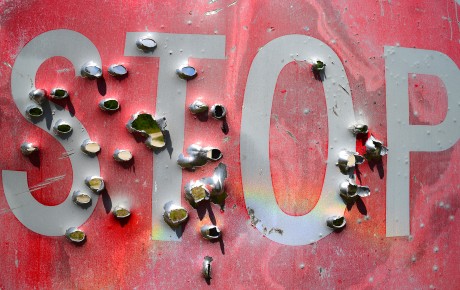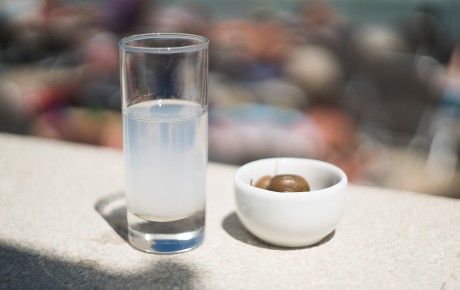
One too many?
Despite wreaking havoc for centuries, experts are still hazy on the causes of the dreaded hangover – as well as effective cures.
There are many pleasures to being a wine lover. The biggest drawback is, without doubt, the ruinous effects on both body and spirit when we are tempted to over-indulge. People have been waking up with hangovers for as long as they’ve been drinking alcohol. Stone Age man and woman no doubt woke up feeling a little rough around the edges after a convivial evening on the fermented fruit and rice juice. But, strangely, given that it has been wreaking havoc for millennia, there is no reliable cure for a hangover.
Most of us have been in this wretched position, but scientists still aren’t quite sure exactly why alcohol brings on the toxic cocktail of nausea, thirst, tiredness and feeling that your bones have been replaced by pipe cleaners.
The symptoms can be ghastly, as Kingsley Amis vividly captured in Lucky Jim:
“Dixon was alive again. Consciousness was upon him before he could get out of the way…He lay sprawled, too wicked to move, spewed up like a broken spider-crab on the tarry shingle of the morning…His mouth had been used as a latrine by some small creature of the night, and then as its mausoleum. During the night, too, he’d somehow been on a cross-country run and then been expertly beaten up by secret police. He felt bad.”
Most of us have been in this wretched position, but scientists still aren’t quite sure exactly why alcohol brings on the toxic cocktail of nausea, thirst, tiredness and feeling that your bones have been replaced by pipe cleaners. It would seem that alcohol is the Stuxnet to our body’s computer system – a perfect weapon that seemingly has a line of malevolent code for every bit of us to render us utterly unfit for purpose.
It messes with the hormone that controls your bladder – hence the frequent trips to the lavatory during the evening and the resulting feeling the next morning as if you’ve hiked across the Sahara. The body releases chemicals to break it down that are more toxic than the alcohol itself, which is why we feel so dreadful, even after the alcohol has been processed. And it causes white blood cells to flood our body, which gives us the flu-like aches and pains which positively demand that we remain in bed.
Hair-of-the-dog cures may help allay the worst hangover symptoms, but as they involve you drinking more booze, the worst is still likely to be lurking around the corner.
Are hair-of-the-dog recipes just shaggy-dog stories?
Hangover cures have been around for almost as long as the hangover. But are any of them any good? Hair-of-the-dog recipes are popular, and there are thousands of them, including the aptly named Suffering Bastard (a combination of gin, brandy, lime juice, bitters and ginger ale) and the Corpse Reviver (consisting of Pernod, champagne and lemon juice).
We’re all looking for the instant reviver, a magic potion that heals and restores a body that only minutes before felt destined to have the Last Rites performed on it, rather like that administered by Jeeves to an ailing Bertie Wooster:
“"If you would drink this, sir," he said, with a kind bedside manner, rather like the royal doctor shooting the bracer into the sick prince. "It is a little preparation of my own invention. It is the Worcester sauce that gives it its colour. The raw egg makes it nutritious. The red pepper gives it its bite. Gentlemen have told me they find it extremely invigorating after a late evening.
"I would have clutched at anything that looked like a lifeline that morning. I swallowed the stuff. For a moment I felt as if someone had touched off a bomb inside the old bean and was strolling down my throat with a lighted torch, and then everything seemed suddenly to get all right. The sun shone in through the window; birds twittered in the tree-tops; and, generally, speaking hope dawned once more.”
Sadly, I’ve found no remedy that has had the same instantaneously invigorating effects of this elixir. Hair-of-the-dog cures may help allay the worst hangover symptoms, but as they involve you drinking more booze, the worst is still likely to be lurking around the corner.
The uncongenial effects of congeners
The source of the worst hangovers are something called congeners: toxins that are a byproduct of the fermentation process and are most present in red wine and dark spirits like whisky or brandy. Which would explain why my worst hangover over Christmas came when I drank Delamain XO cognac. It’s a deliciously moreish brandy – as I found to my cost – with a pale colour and vanilla taste, but which, if taken in excess, can make one’s head feel like the inside of the Large Hadron Collider.
Contrary to some opinion, there is no medical evidence to prove that sulphites cause hangovers, so you can’t drink more organic wines without suffering the same after-effects as any other bottles.
Lighter reds, like Tempranillo, Cabernet Sauvignon and Mourvedre, are less likely to give you that morning-after feeling. Also, there are two hangover-related reasons why it’s worth spending a little more money on your red wine. First, bulk wine tends to have more preservatives added; also, we tend to want to savour more expensive wine, so we simply drink it slower.
Red wine contains more congeners and tannins that may make you feel worse the morning after, but it does have one advantage: unlike white wine or champagne, it makes you feel thirsty (because of the tannins) so you tend to drink more water with, or after, it, which helps to avoid a hangover.
A lot of fuss has been made about the sulphites in wine, which are produced naturally in the wine making process but which are also added by some winemakers to ensure their produce has consistent quality. Contrary to some opinion, there is no medical evidence to prove that sulphites cause hangovers, so you can’t drink more organic wines without suffering the same after-effects as any other bottles.
I try to ward off a hangover by drinking lots of water and taking Vitamin C before tottering off to bed. But, if that fails, and I wake up feeling decidedly the worst for wear, I try to drag myself out of bed, pull on my trainers, and – however unwillingly – go out for a run. I’ve found it helps to kickstart my metabolism, sweat out some of those toxins, and the water I drink afterwards will rehydrate me. And, perhaps, yes, it offers me a 21st century version of a hairshirt to help me atone for the previous night’s excesses.
I’ll then follow that with a good, old-fashioned fry-up. Many hangover sages would advise against this, but I’ve discovered there are a few shreds of scientific support for this, if only that coping with fatty foods distracts your body from coping with the alcohol and therefore helps to keep a hangover at arm’s length, until all the water I’ve drunk after my jog starts to kick in.
There’s only one surefire way of avoiding a hangover: don’t drink, but where’s the fun in that?
Sometimes, it can be more pleasing to drink a great wine from a less-than-great year than drinking a modest wine from a perfect vintage.
What I’ve drunk recently
Christmas is always a time to enjoy good company, good food and good wine, and I drank two standout wines over the festive season. The first was a 2006 Gruand Larose, a “super second” Saint Julien that was absolutely delicious. Even though 2006 wasn’t a great year, the wines are drinking very nicely now, being ripe and friendly. Sometimes, it can be more pleasing to drink a great wine from a less-than-great year than drinking a modest wine from a perfect vintage.
The other was a 2002 Chateau Montbousquet, a big Saint Emilion that always scored very highly with Robert Parker, who loved punchy, powerful reds. Again, 2002 isn’t considered to be a great year, but this wine went down beautifully, especially with the gorgeous fillet of beef it accompanied.
I found the January wine sales disappointing, perhaps because of the slump in the pound following the Brexit vote. There weren’t any really compelling deals for me, but let’s see what the future holds.



